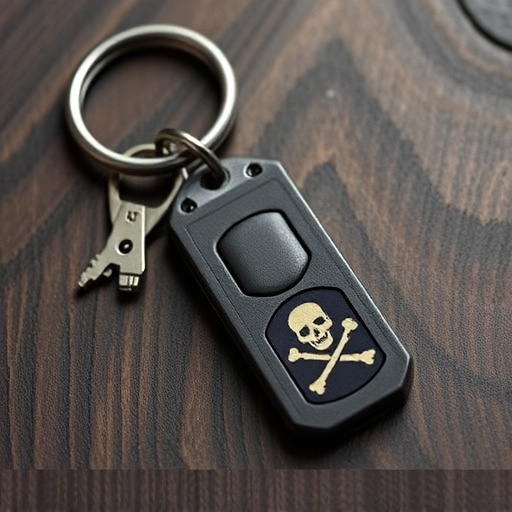The legality of keychain alarms for walking alone varies greatly across jurisdictions, with each state having unique regulations regarding their carry, activation, and permissible locations due to differing public safety and civil liberties frameworks. While some states explicitly allow these devices for self-defense, others may require permits or have strict limitations. Understanding these laws is crucial for legal compliance and maximizing the effectiveness of keychain alarms in enhancing personal safety while walking alone. Users should check local laws to ensure legally permitted use.
Staying safe while walking alone is paramount. In today’s world, carrying a keychain alarm as a self-defense tool has gained popularity. However, understanding the legal requirements surrounding these devices varies by state. This article delves into the legal framework governing personal safety devices, specifically focusing on keychain alarms. We explore state-specific regulations to provide a comprehensive guide for individuals looking to protect themselves while walking alone, ensuring they stay within legal boundaries.
- Legal Framework for Personal Safety Devices: Understanding the Basics
- Keychain Alarm as a Self-Defense Tool: What the Law Says
- State-Specific Regulations: A Comprehensive Guide for Walking Alone
Legal Framework for Personal Safety Devices: Understanding the Basics
In many jurisdictions, personal safety devices like keychain alarms for walking alone have emerged as viable options to enhance individual security. The legal framework governing these tools varies significantly from state to state, reflecting a delicate balance between promoting public safety and preserving civil liberties. Understanding these laws is crucial before investing in or relying on such devices for self-defense.
Each state has its own set of regulations that dictate the legality of carrying personal safety alarms, including keychains. These regulations often consider factors like age restrictions, permissible places of carry, and conditions under which the alarm can be activated or used. Some states explicitly allow individuals to carry small personal alarms for self-defense, while others may require permits or have stringent restrictions on when and where such devices can be employed. Staying informed about these legal nuances is essential to ensure compliance and maximize the effectiveness of a keychain alarm for walking alone in enhancing one’s personal safety.
Keychain Alarm as a Self-Defense Tool: What the Law Says
A keychain alarm can be a useful tool for individuals who often walk alone, seeking to enhance their personal safety. However, its legality as a self-defense mechanism varies across states. In many jurisdictions, small personal alarms or keychains designed to emit loud sounds are permitted under laws that protect citizens’ right to defend themselves. These devices are often seen as non-lethal means of deterring potential attackers and drawing attention to a distressing situation.
The specific legal requirements for carrying a keychain alarm differ from state to state. Some states allow them with no restrictions, while others may have age or carry limits. For instance, some places classify these alarms as personal protection devices, ensuring their legality under certain circumstances. Users should familiarize themselves with local laws to ensure they are within the boundaries of the law when opting to use a keychain alarm for walking alone.
State-Specific Regulations: A Comprehensive Guide for Walking Alone
When it comes to self-defense while walking alone, understanding state-specific regulations is paramount, especially when considering carrying a keychain alarm for added safety. Each US state has its own set of laws governing the use and possession of personal protection devices like these keychains. For instance, some states explicitly permit the open carry of such alarms without a license, while others may restrict their use to situations where an individual is in danger or during certain professional activities.
For those living in states with strict regulations, obtaining proper permits or licenses for self-defense tools might be necessary. This often involves background checks and training requirements. It’s crucial to research and comply with local laws to ensure legal carriage and effective use of a keychain alarm when walking alone, as different states have varying degrees of restrictions and allowances regarding personal protection devices.
Carrying a keychain alarm as a means of self-defense while walking alone can be a powerful tool, but understanding the legal requirements in your state is crucial. This comprehensive guide has outlined the legal framework and state-specific regulations regarding personal safety devices like keychain alarms. By knowing the laws, you can ensure that you remain within legal boundaries while empowering yourself with a simple yet effective self-defense mechanism. For those who prioritize their safety while walking alone, a keychain alarm could be a valuable asset, providing peace of mind in an unpredictable world.
